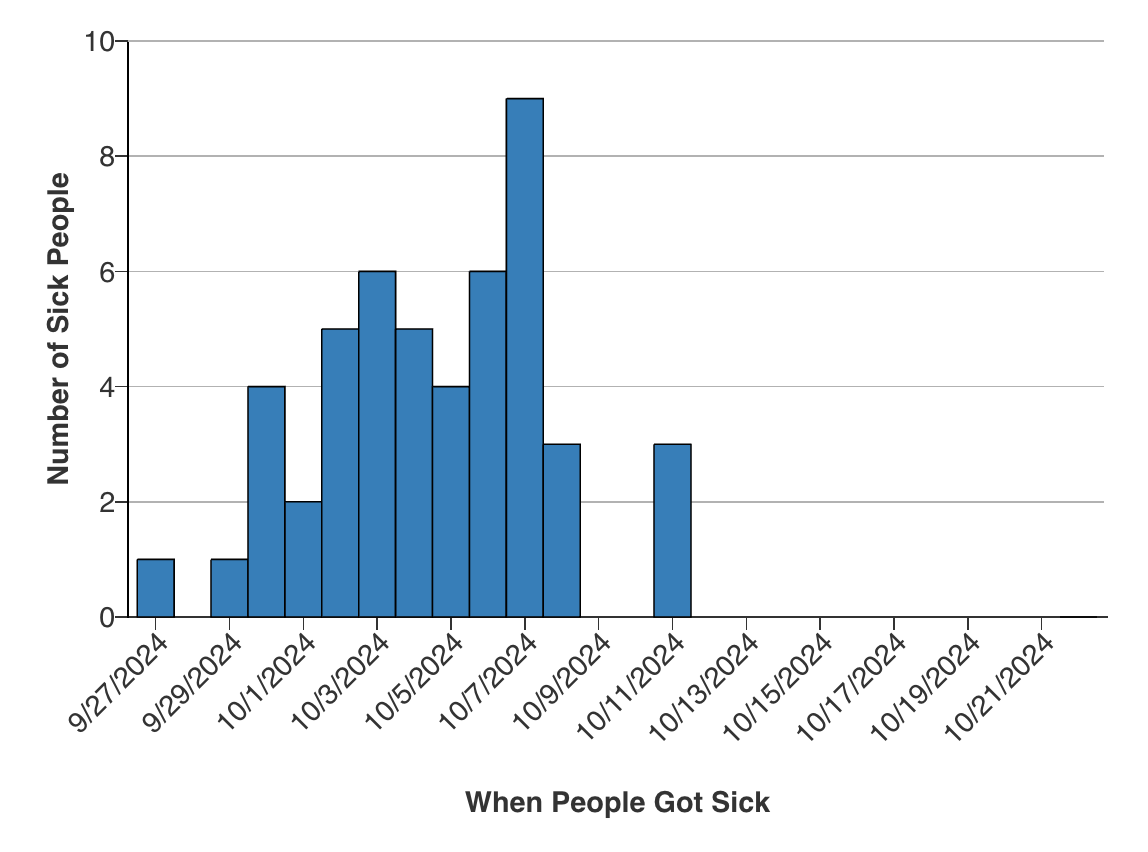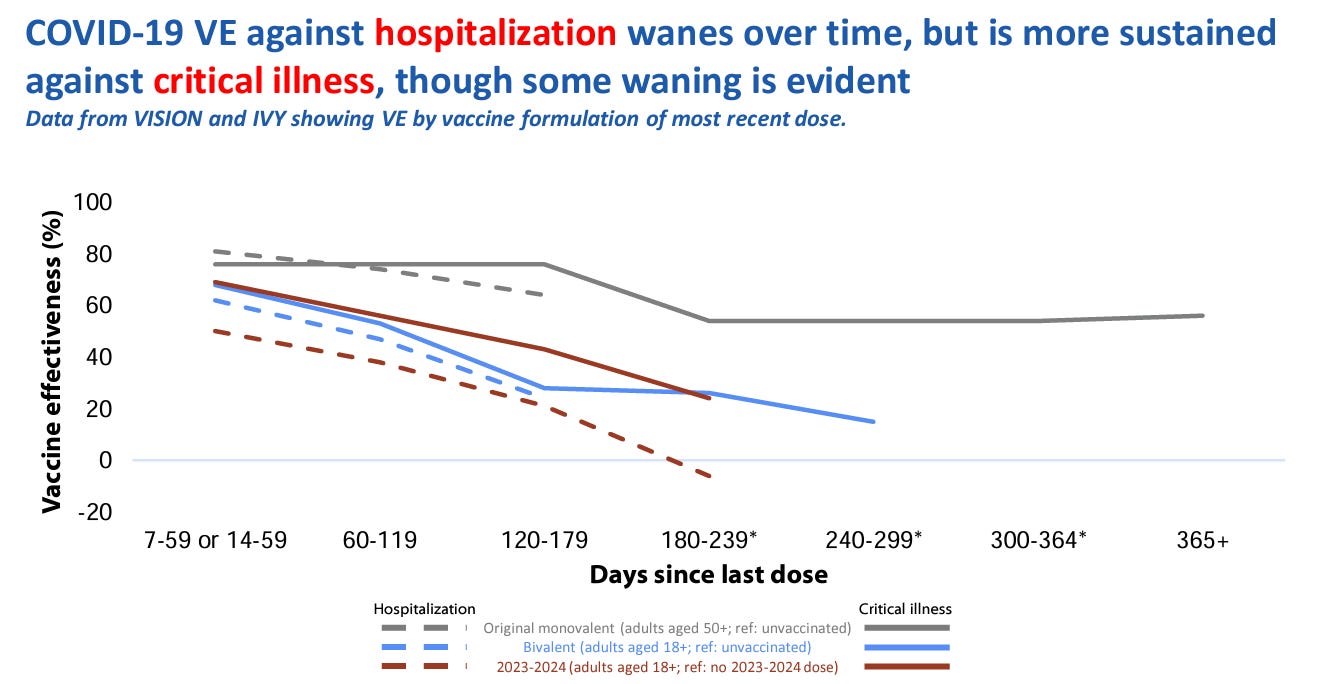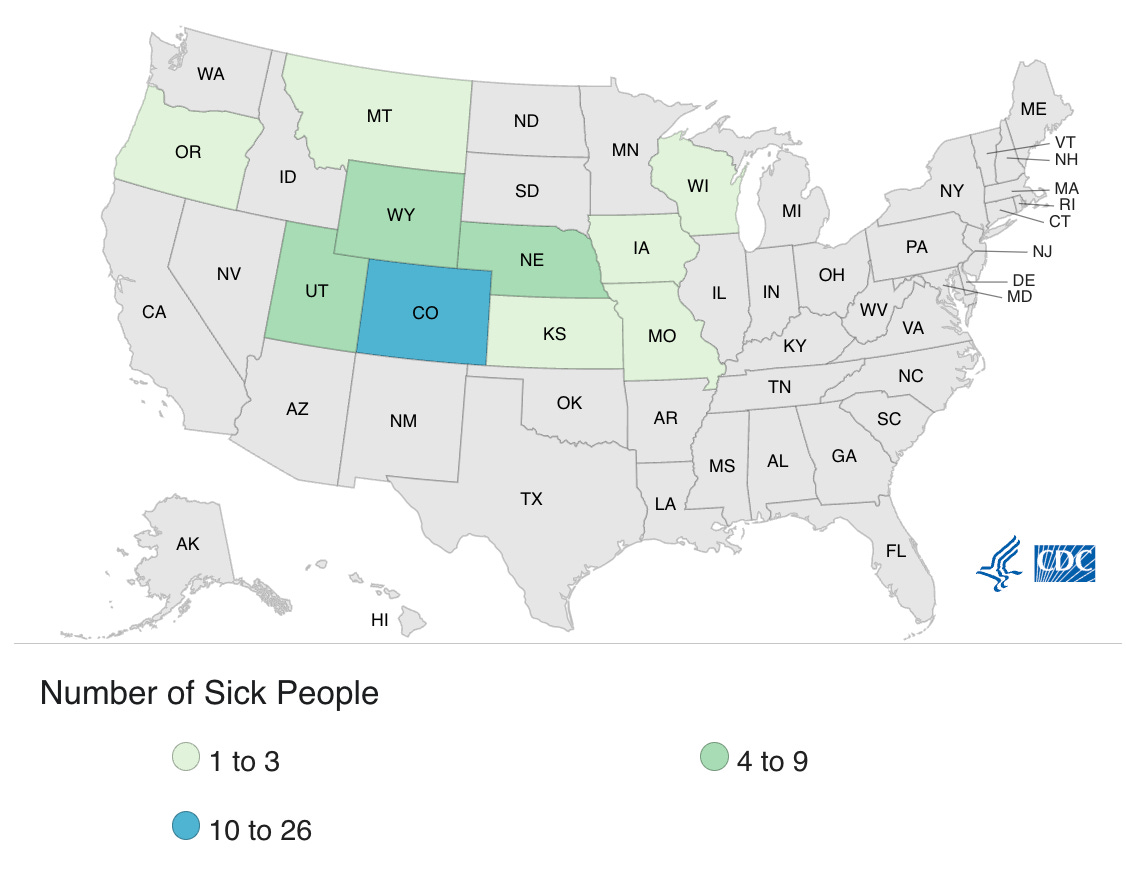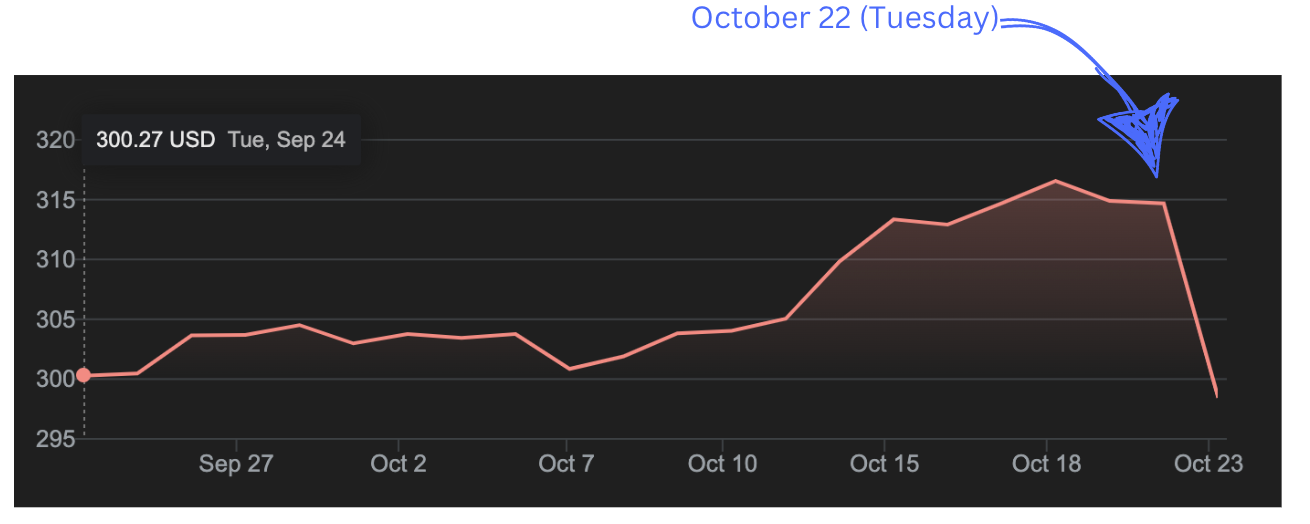The Dose (October 25)
Covid-19 vaccine in spring, more food recalls, infant mortality increases after Dobbs, and more.
Happy Friday! It’s time to dive into this week’s public health nuggets, peppered with nuance because, well, the YLE community loves nuance.
Your “weather” report for the week
Covid-19, flu, and RSV are still at low levels.
Adults 65+: Expect a Covid-19 shot this spring
The CDC external advisory committee—called ACIP—met this week to discuss various vaccines. Members unanimously voted to recommend Covid-19 shots for seniors this spring.
They had two main reasons:
Waning protection against Covid-19 hospitalization and critical illness for those over 65. Last fall, there was zero additional protection against hospitalization 6 months after vaccination. (Note: This is additional protection compared to all the immunity already out there.)
2 shots a year vs. 1. CDC presented data we have been desperately waiting for: Seniors who get two shots per year have ~20% additional protection against hospitalization than those who get one shot per year. Importantly, though, our confidence is low because few people get two shots a year. So, mathematical models show this percentage can range from 0% to 40%. In other words, scientists think two shots are better but don’t know for sure.
Seniors should get their Covid-19 shot this fall. Another one will be available in spring. I think it’s the right policy and will encourage my grandparents to get two a year.
Multistate E. coli outbreak tied to McDonald's Quarter Pounders
This week, we got another food warning: E. coli in McDonald’s Quarter Pounder hamburgers. The epidemiological investigation is starting to point to slivered onions as the culprit, so McDonald's has stopped selling Quarter Pounders in a number of locations.
E. coli is a bacteria that can make people very sick, particularly kids, older adults, pregnant women, and immunocompromised people. This specific E. coli strain is dangerous because it can create a toxin that causes hemolytic uremic syndrome, a serious condition that can cause kidney failure. Antibiotics are not recommended because they can make a person sicker.
Below is an “epi curve”—this shows the number of people getting sick over time. While it looks like this outbreak has peaked, it certainly could continue growing, as it takes 3 to 4 weeks to determine if a sick person is part of an outbreak.

In news that will shock no one, the timing of this outbreak has led to a viral conspiracy theory: E. coli was planted by public health to tarnish Trump’s campaign stop a visit to a McDonald’s in Pennsylvania over the weekend. This is simply not true, given that illnesses started September 27—far before any campaign stop.
Nonetheless, McDonald’s Inc. stock plummeted on Tuesday after the news of the foodborne illness broke. This highlights the pivotal lesson that good health is, in fact, linked to good business.
Does it seem like we’re getting more foodborne illnesses lately? It sure feels like it from headlines, so some have pointed to a decrease in food regulations under Trump, and others have pointed to more complex supply chains or more sensitive testing. But, the number of multi-state investigations of foodborne illnesses this year is no different than pre-pandemic years. I think the feeling is due to a pandemic silver lining: More people are paying attention to public health-related topics.
Infant mortality rate increased since Dobbs
A new study compared infant mortality rates for the 18 months following the Dobbs decision against historical trends. Scientists found:
Infant death rates were higher than usual after the Dobbs decision
Of the infant deaths, 80% were attributed to birth defects and anomalies.
This means that more women have to carry these gestations and give birth, knowing their child is likely going to die shortly after birth.
This finding is consistent with two other studies that came out earlier this year:
In Texas, infant mortality rose almost 13% after the state enacted a total abortion ban—with a 23% increase in deaths due to congenital anomalies.
In 2023, nearly a quarter of people seeking an abortion in the United States were unable to get one. A report (not peer-reviewed) found this increased the number of births in states with abortion bans—about 32,000 more births than expected.
Abortion is on the ballot in 10 states. These studies are a good reminder that your vote is linked to yours and others’ health and wellbeing.
Reader question grab bag
For RSV for infants, I’m wondering if we are seeing any difference between the vaccine during pregnancy vs monoclonal antibodies once born - is one better than the other? And why not do both?
Unfortunately, no head-to-head study has been conducted yet. Given so many people have horror stories about trying to find RSV vaccines and/or monoclonal antibodies, I would get whichever one you can find.
If I’m being totally transparent, I think monoclonal is better: It maintains protective levels for over a year, and the protection is higher than reported for the vaccine (even though we can’t really compare because they were different clinical trials trials). But 98% effectiveness (for monoclonal antibodies) is basically unheard of.
Getting both won’t hurt. In other words, it will not “overwhelm” the baby’s immune system. However, it also won’t provide additional protection, it’s expensive, and supplies are limited. There are a few exceptions:
If the pregnant woman has to deliver early, she won’t transfer enough antibodies depending on when she got vaccinated.
If the pregnant woman is immunocompromised, she may not make a lot of antibodies that will transfer to the baby.
If the infant is high-risk, like born premature with serious congenital heart defects.
Poll
And…
Bottom line
You’re now caught up on public health nuggets for the week! Have a great weekend.
Love, YLE
“Your Local Epidemiologist (YLE)” is founded and operated by Dr. Katelyn Jetelina, MPH PhD—an epidemiologist, wife, and mom of two little girls. The main goal of this newsletter is to “translate” the ever-evolving public health science so that people will be well-equipped to make evidence-based decisions. This newsletter is free to everyone, thanks to the generous support of fellow YLE community members. To support this effort, subscribe below:









In response to the survey question, YES I'm ready for the election to be over... but I am very scared too.
“ In news that will shock no one, the timing of this outbreak has led to a viral conspiracy theory: E. coli was planted by public health to tarnish Trump’s campaign stop a visit to a McDonald’s in Pennsylvania over the weekend.” There is nothing that the Cult of Trump can’t turn into a wackadoodle conspiracy theory aimed at harming the Anointed One. Nothing. These people are well and truly frightening. Everybody needs to go back and read Hoffer’s “The True Believer” again.